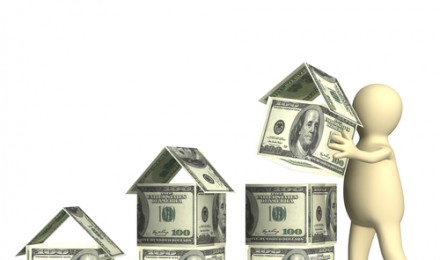There are many things in the human life where emotions are great to have. Falling in love is a wonderful feeling. Becoming attached to a certain brand makes us feel like we are part of an exclusive club. Favorite foods help keep us happy, and styles define us. Nearly all our choices are based on emotion, and this helps us to become who we are. But when it comes to the world of investments, the emotional investor is at a disadvantage when making financial decisions.
The fight of flight gene is built into everyone in some fashion or another. In today’s world, where we rarely encounter life threatening situations, that gene manifests itself in other places where we have attached importance. When times are good, we keep putting money into the market. This is seen on every good market year. The influx of money continues until the peak, right when everyone thinks things are doing great. As the market starts to correct itself less and less money goes in, and as it drops to the bottom, the money goes pouring out of the market just as fast as it was going in. Nobody likes to admit it, but all they are doing is buying high, and selling low.
Why would anyone do that? They know they are losing money. As humans, we get attached to our investments. We see them increase, and we “know” they will keep going up. When they correct themselves we are certain our investments will be different and they will go back up. Eventually the losses become too much and we pull our money out. This is after the damage has been done. After watching the market and seeing it go back up for several days, we then put our money back into the market. We end up buying back in at a higher cost than we got out. Missing the bottom ends up costing a lot in lost rate of return. This chart is great to see what happens when you get out and back in at all the wrong times.
Let’s face it, nobody likes to lose money. It is not pleasant to look at our portfolio, day after day, and see the value continue to drop. Instead of getting nervous and taking everything to cash (by the time the market is going down it is too late for that), we should look at the market drops as opportunities. The stocks are “on sale” and now is a great time to beef up our portfolio so when the market goes back up (not surprisingly every drop in the history of the stock market has been followed by a rise) we see huge increases. So how do you avoid the roller coaster that comes with being an emotional investor in a volatile market? Make a plan, and stick with the plan no matter what. For many people this means do an exhausting amount of research on their investments. For most people this means buy and hold, rebalance regularly, and become more conservative as retirement approaches.
There are many things in the human life where emotions are great to have. Falling in love is a wonderful feeling. Becoming attached to a certain brand makes us feel like we are part of an exclusive club. Favorite foods help keep us happy, and styles define us. Nearly all our choices are based on emotion, and this helps us to become who we are. But when it comes to the world of investments, the emotional investor is at a disadvantage when making financial decisions.
The fight of flight gene is built into everyone in some fashion or another. In today’s world, where we rarely encounter life threatening situations, that gene manifests itself in other places where we have attached importance. When times are good, we keep putting money into the market. This is seen on every good market year. The influx of money continues until the peak, right when everyone thinks things are doing great. As the market starts to correct itself less and less money goes in, and as it drops to the bottom, the money goes pouring out of the market just as fast as it was going in. Nobody likes to admit it, but all they are doing is buying high, and selling low.
Why would anyone do that? They know they are losing money. As humans, we get attached to our investments. We see them increase, and we “know” they will keep going up. When they correct themselves we are certain our investments will be different and they will go back up. Eventually the losses become too much and we pull our money out. This is after the damage has been done. After watching the market and seeing it go back up for several days, we then put our money back into the market. We end up buying back in at a higher cost than we got out. Missing the bottom ends up costing a lot in lost rate of return. This chart is great to see what happens when you get out and back in at all the wrong times.
Let’s face it, nobody likes to lose money. It is not pleasant to look at our portfolio, day after day, and see the value continue to drop. Instead of getting nervous and taking everything to cash (by the time the market is going down it is too late for that), we should look at the market drops as opportunities. The stocks are “on sale” and now is a great time to beef up our portfolio so when the market goes back up (not surprisingly every drop in the history of the stock market has been followed by a rise) we see huge increases. So how do you avoid the roller coaster that comes with being an emotional investor in a volatile market? Make a plan, and stick with the plan no matter what. For many people this means do an exhausting amount of research on their investments. For most people this means buy and hold, rebalance regularly, and become more conservative as retirement approaches.







